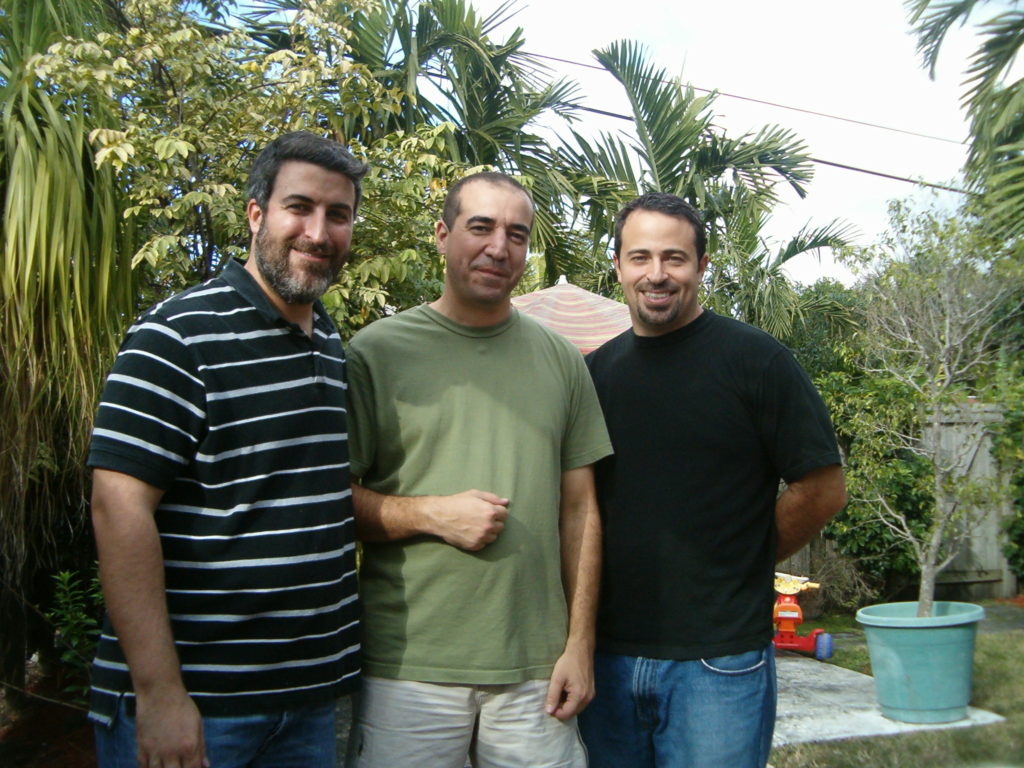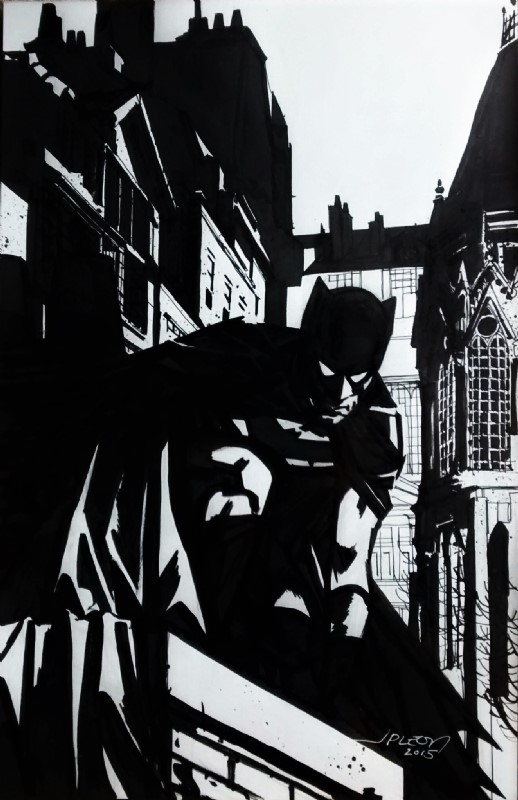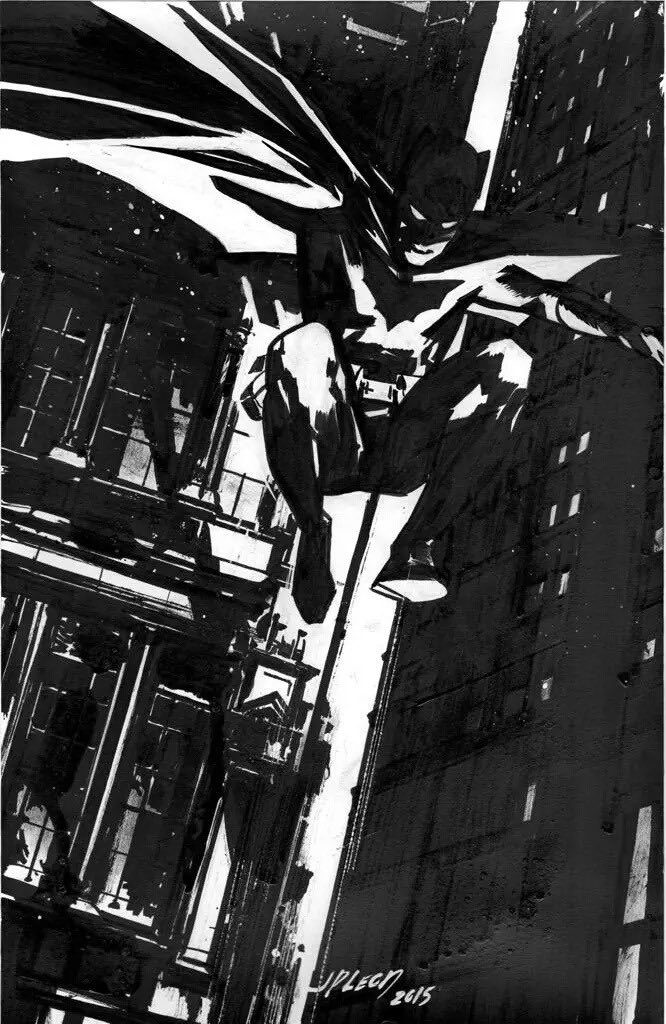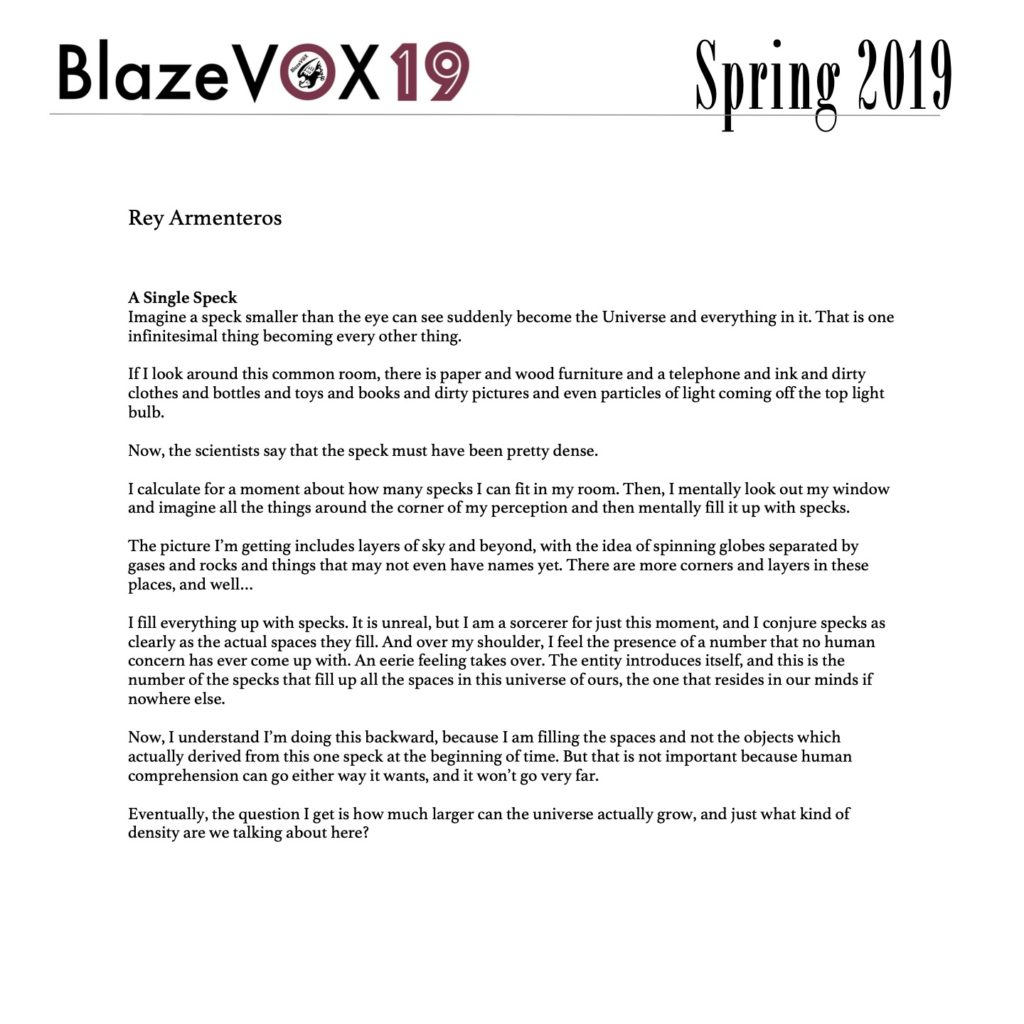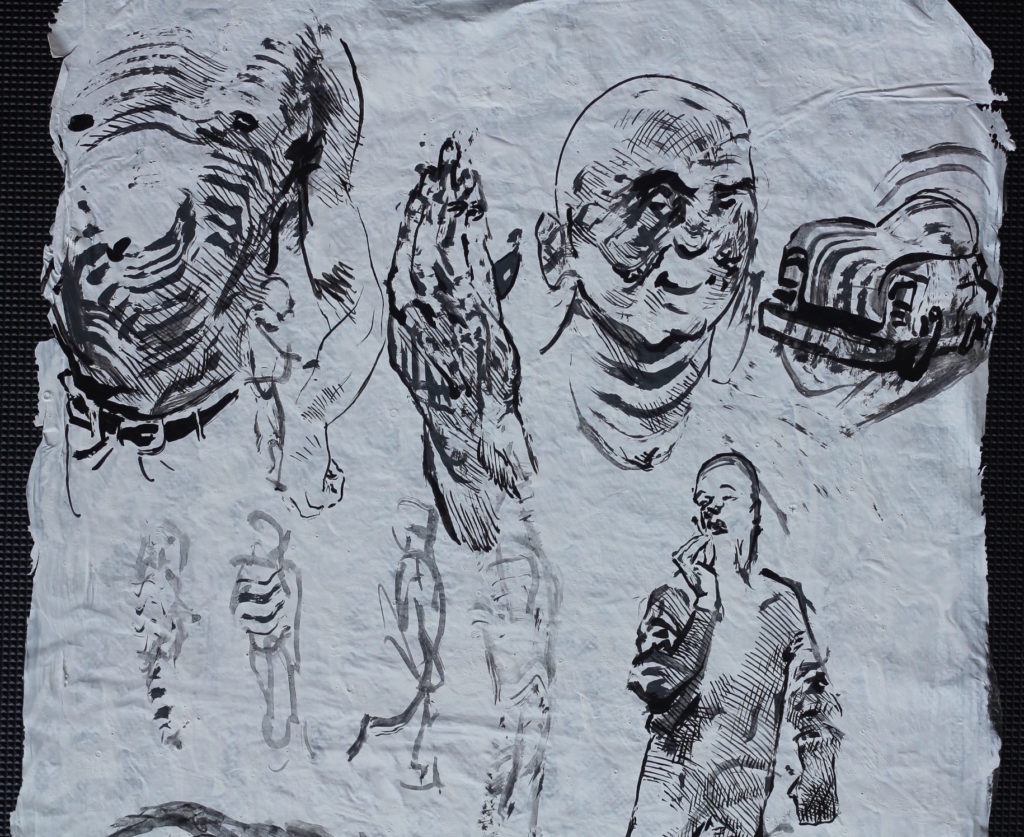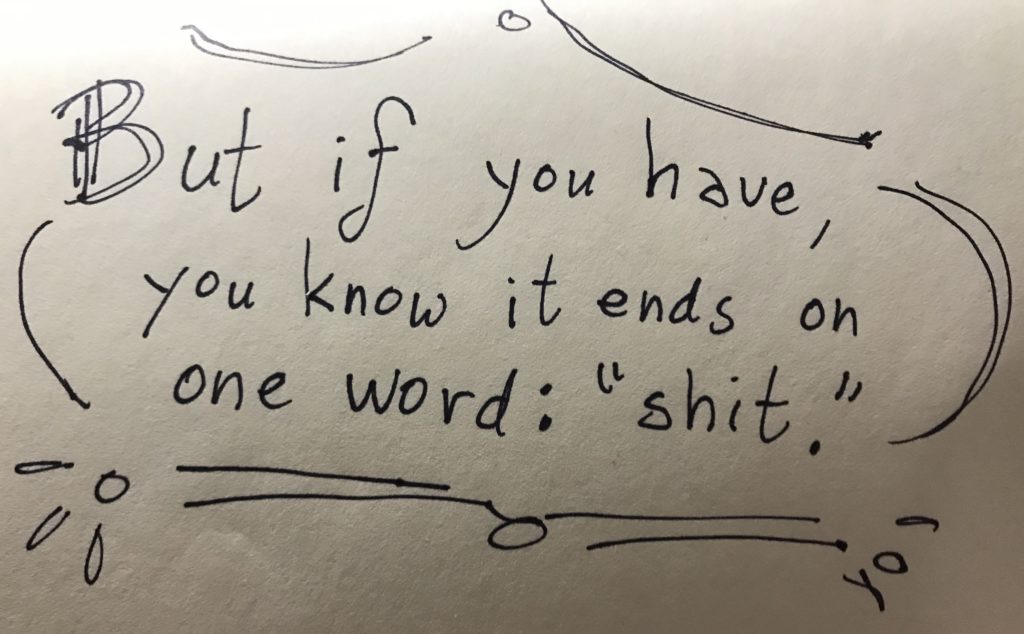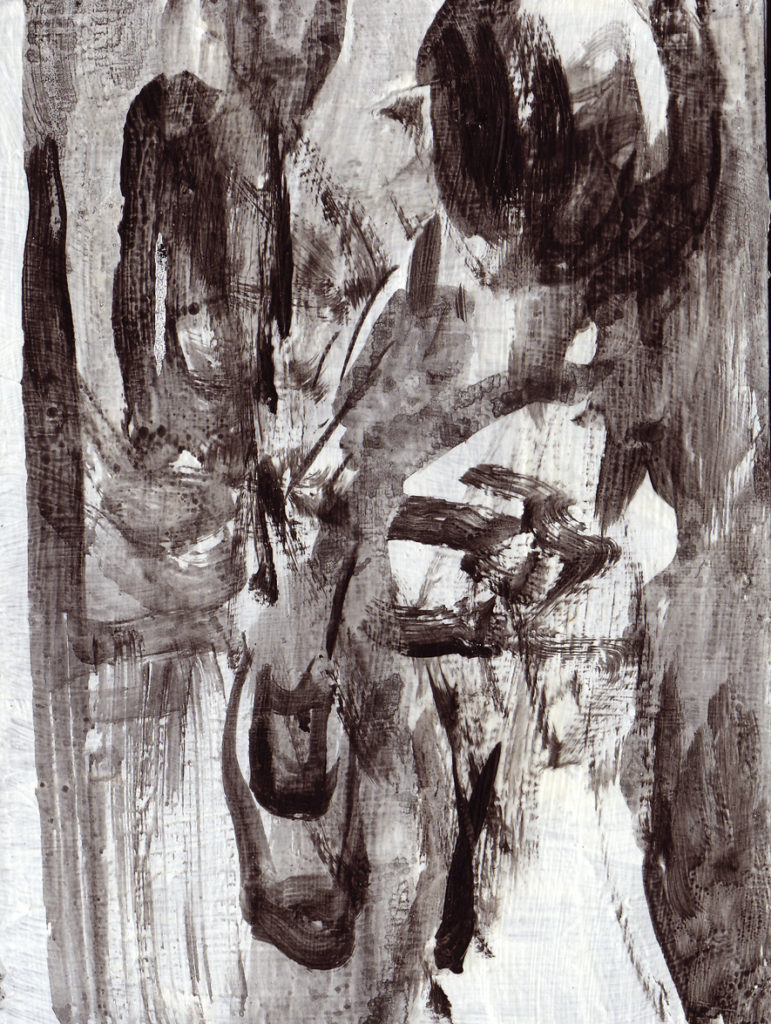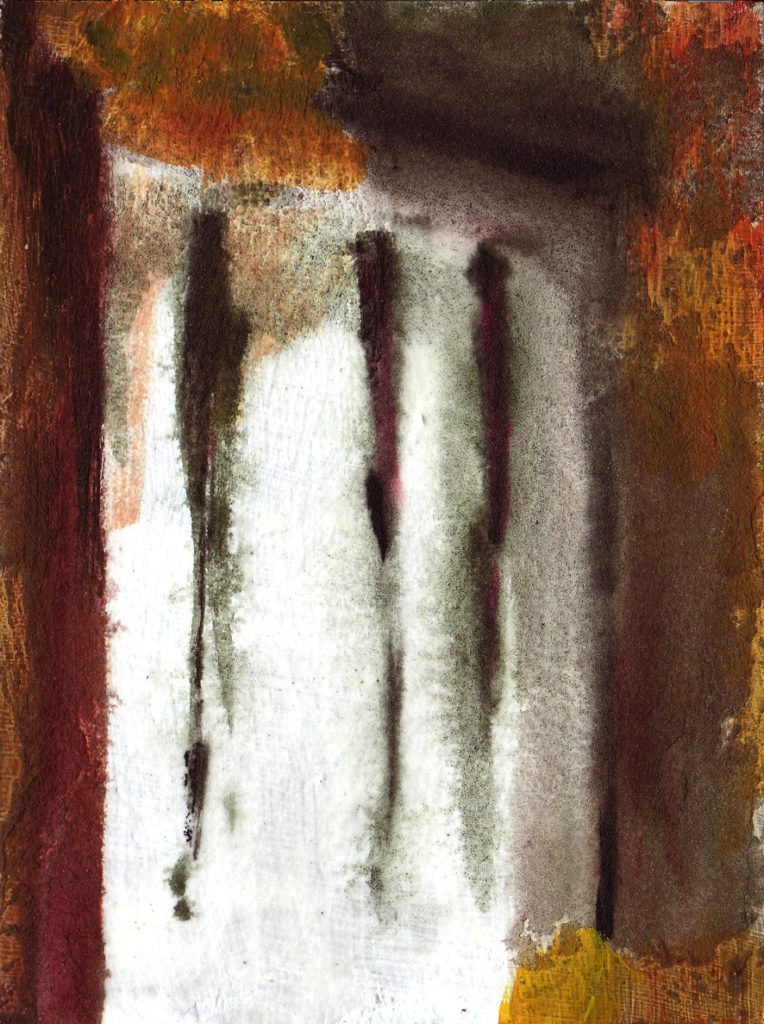Moments with John Paul Leon – First
by Rey ArmenterosWe would get together and play with Star Wars figures, talk about movies like Bakshi’s Lord of the Rings, and just have fun. We were cousins by marriage. JP and Alex’s mother was first cousins with our stepfather. Our stepfather had just married our mom, and he told us that we were going to meet two other boys just like us. They grew up in New York City and hadn’t been in Miami long. That Sunday evening, at my stepdad’s parent’s house, they came over, toys in hand, instantly warming up to us. We recognized right away that JP and Alex were different. Their ideas, their style of playing, the sense of humor all came together to form something special.
For a brief eight or nine months, we lived in the same apartment building. We were on the fifth floor and they were on the second floor. And yet, even in such close proximity, we only got together twice during this era. Once was for Alex’s birthday where our parents got him a Shogun Warriors mini-figure made of die-cast metal, called Poseidon. Getting together with them, no matter the reason, was always the best time!
And it got even better the day we learned about their passion for comics. We were into comics too. The problem was that they were into DC, and we were into Marvel. That might have been the first time we didn’t see eye-to-eye. I started the argument by saying DC sucked. A couple of years back, I used to read my school friends’ DC comics before I became a comic book collector. I actually liked Green Lantern, The Legion of Superheroes, and Batman. But that was then. It all changes when you take something seriously, consider yourself a serious comic book collector, and draw boundaries based on the one or two things you really liked. I guess it was the same for them, because they thought Marvel sucked.
Well, we managed to convince each other to check out the other’s comics. JP and Alex were the ones that got me into Teen Titans and Omega Men. I got them into X-Men.
Like me, they were drawing their own comics. They were showing me and telling me the stories. JP had his group of superheroes, and Alex had his own. I don’t know that they ever mixed the stories. I was looking at their drawings and recognizing that they were both talented. My brother is also named Alex. He was the only one that didn’t draw in our group. And his interest in comics was not like ours. JP and Alex had dreams of making it into comics, like I did. Every time we’d get together after that, we’d draw or go on and on about the comics that had just come out, showing specific panels from favorite comics where the good parts were happening, going into the backstory, referring to pieces of creative lore about which artist created what and which artist was better than whom.
The next big thing that happened was Dungeons & Dragons. It was an amazing coincidence! Alex and I received the D&D Basic Set on the same Christmas that JP and Alex did. We were on the phone going on about it, and in a matter of days, we were at their house going through our first adventure. As a new Dungeon Master, I had no idea what I was doing. The first character death was probably JP’s thief. It was great for a laugh.
We only got together once in a while, and we were as avid about D&D as we were about comics. My brother and I played every weekend, and they played just as much. The next time we played D&D the four of us, Alex Leon was the Dungeon Master. We played this ninja-like adventure module called “The Veiled Society.” We were playing in Alex’s room, and it was decorated with fantasy posters. The Star Wars toys were probably still there, but they would soon be gone. Days later, I would be telling them about my own Arabian assassin, Darkoth, based on one of those posters, which had these ninja-like figures garbed like warriors from the Arabian Nights.
JP and Alex were getting official D&D modules, and they were passing them onto us after they had finished them. They were soon moving on to Advanced Dungeons & Dragons, and we did the same not long after. On the phone, we’d talk about these adventures. JP and Alex played their AD&D straight, bringing in serious death, just like us, but they would spice it up with humor.
When they started their World of Greyhawk campaign, they were really playing at a higher level than we were. A large part of that, I think, is because Alex was becoming a really good Dungeon Master, allowing for things to just happen when they needed to instead of railroading the characters into what the DM wanted them to do, like I tended to do. The few times the four of us played together, he was the DM, and I witnessed his skills firsthand. He’d make creative almost quirky situations for the characters. They told me about an adventure where they used a crossbow to shoot a rope so that they could climb a wall. They ended up shooting a guard who was holding onto the wall for dear life, as JP’s characters were trying to climb up. The trouble was that if they shot off all his hit points, he’d collapse, taking the heroes with him.
Alex maneuvered through these situations, and JP injected his characters with the same sense of humor he placed in his superhero comics. All the D&D and comic book stories were relayed in exacting detail as we talked about these personal war stories. In his comics, JP had an arrogant superhero called Lance. He grew up rich and was used to ordering people around. He was the type of guy that would hold up his hand to stop traffic as he was crossing the street. One day, he did that to a carload of bank robbers that had pulled a job, and they ran him over. JP’s halfling character would come up with crazy phrases like, “You’ll smoke a turd in hell for that!”
Comics and D&D was that time before we started caring about stuff, like how we dressed and what kind of music we liked. I was the oldest by a year. The two Alex’s were also a year apart. And JP was the youngest by about a year. During my first year of high school, their family invited us to go to Sanibel Island. They went to the same resort every year on Memorial Day Weekend.
That first time at Sanibel, the four of us hardly left the pool. If we weren’t playing King of the Mountain, practically drowning each other and then getting miffed about it, we were conducting the world championship match of ping-pong, poolside. When it rained, we were indoors, drawing on paper menus, collaborating on sketches of our superheroes. I think I have six of those papers somewhere in my mom’s house in Miami.
We would scout outside the resort, and we were playing out our adventure in our heads as we were walking down the empty streets of a nearby community. My brother said he knew a way back to the resort and that he would beat us there with his shortcut. He disappeared through some foliage. We let him go, but when I noticed a car turn the corner a couple blocks behind us, I yelled to our group that the dark lord’s minions had finally caught up with us. We started running. Then we heard a police siren, and we froze. It was the wrong car to be running from. And the deputy sheriff started questioning us without getting out of the car. Why were we running from his car? We were just playing, like pretending. Who was that other boy who was lurking around the shrubs? We explained it was my brother. He told me, “You know, your brother looked mighty suspicious?” He let us go, and JP and Alex later told my brother that he looked mighty suspicious. That was an ongoing joke for the next couple of years. We would be playing D&D, talking about marching order, and JP would tell Alex, “You get in the front; I don’t want you behind me — you look mighty suspicious.”
The next time we went to Sanibel, I pulled the same thing when we were walking towards some woods on our first night back. I pointed and yelled that there was a man with a bloody hatchet coming out of the woods, and the four of us were running back to the bungalows. I never did learn my lesson.
Much of the time in the swimming pool, we were relaying the stories we were building in our minds with the intention of making them into comic books. When it rained, we were indoors drawing our characters; we were explaining who was who and what their powers were and what they had done. One of JP’s main heroes was Aneron, whose hands could detach from his forearms on long cables made of “aneronian” steel.
Alex and I didn’t go a third time, and I remember talking to JP over the phone telling him that this catastrophe was due to the Evil Magic of Miami. My incongruous expression didn’t make a whole lot of sense. Why did I refer to it like that? I don’t know. I think the problem was more complicated than that, and I was finding any expression to just deal with it without it referring to what was really happening. My parents might soon be getting a divorce, and I didn’t want to invite that subject with JP and Alex. It was an adult problem, and it was beyond the realm of kids. But JP would mention the Evil of Miami for the next couple of years for anything that went wrong. We were still cousins, even if our stepdad was no longer with my mom.
